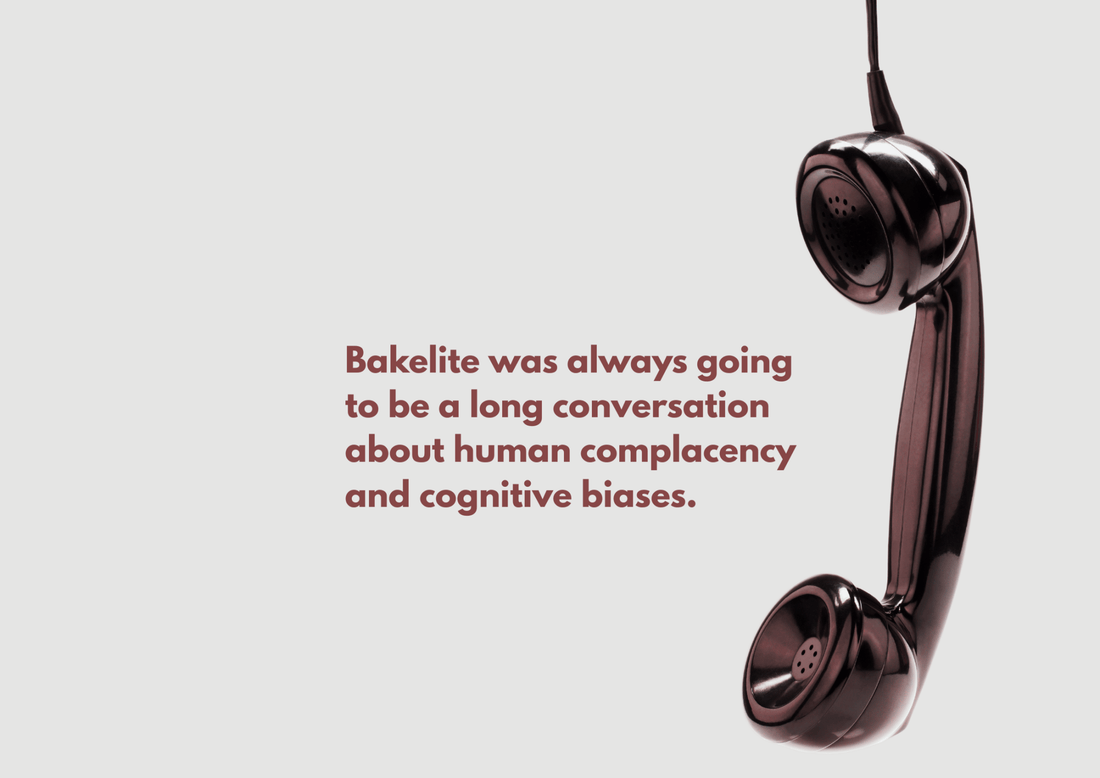Bakelite, the world's first fully synthetic plastic invented in 1907 by Leo Baekeland, revolutionized manufacturing with its unique properties: heat resistance, electrical insulation, chemical stability, and remarkable durability. This thermosetting phenol-formaldehyde resin became ubiquitous in early 20th-century products, from electrical components to consumer goods like telephones, jewelry, and kitchenware. Unlike modern plastics that degrade into microplastics, Bakelite's near-indestructible nature means fragments still persist in landfills, antique collections, and even scattered environmental debris today - a testament to both its engineering brilliance and the unintended consequences of the synthetic material.
While Bakelite itself poses minimal environmental risk, its story reveals patterns of short-term thinking and cognitive biases that have led to our current plastic pollution predicament.
The scale of modern plastic waste is staggering. Since 1950, over 9 billion tons of plastic have been produced, with 79% accumulating in landfills or in every natural habitat on the planet. Single-use items account for half of this waste, with 1 million plastic bottles sold every minute globally. Microplastics now contaminate everything from ocean depths to human organs - the average person ingests 5 grams or the weight of a
credit card's worth of plastic weekly. This pollution kills over 1 million seabirds and 100,000 marine mammals annually while leaching toxic chemicals linked to cancer and infertility into our bodies.
So how did this happen? Basically, there were 3 key failures that created this crisis. Firstly, a systemic failure to identify corporate deception by oil companies promoting recycling while knowing most plastics couldn't be recycled economically. Secondly, to err is human, but in this case, a costly failure through cognitive biases like optimism bias ("technology will fix it later") and normalcy bias ("plastic is essential") prevented meaningful conversation and action across all sectors. Thirdly, policy failures left only 14% of countries worldwide with adequate plastic regulations.
The clock is ticking. Solutions must address these root causes. We need global bans on unnecessary single-use plastics, investment in truly biodegradable alternatives, and laws holding producers financially responsible for waste. Consumers must reject disposables and demand sustainable options.
Bakelite's legacy teaches us that durability without responsibility is dangerous. Unlike early 20th century innovators, we can't plead ignorance about plastic's impacts. The question is whether we'll overcome complacency and cognitive biases to act before microplastics permanently alter our planet's ecosystems and our own biology. The time for decisive action is now before our plastic legacy becomes irreversible.

